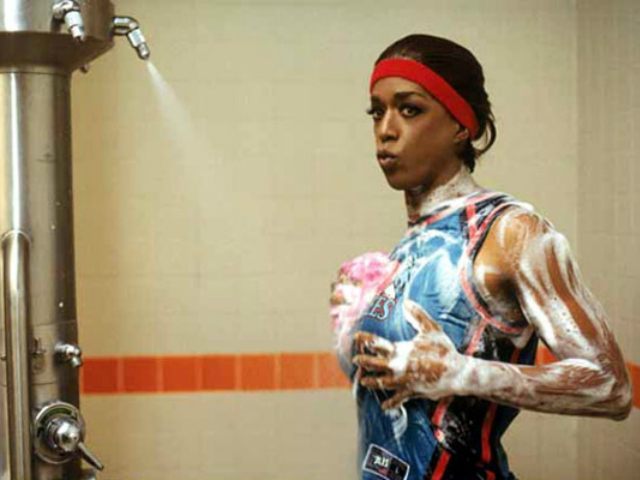Whoever said art imitates life never said it about Juwanna Mann.
But the 2002 comedy set in Charlotte about a suspended professional basketball player who dresses as a women to play in the ladies’ league juxtaposed with the NBA’s current obsession with letting males in the women’s room shows that truth is indeed stranger than fiction.
The league’s threat to pull next year’s All-Star Game from Charlotte gives new meaning to the basketball phrase “transition game.”
The NBA pressures North Carolina by talking about relocating next year’s All-Star Game from Charlotte to somewhere more less Mayberry and more modern in its embrace of transgenders because of a law described within as “an act to provide for single-sex multiple occupancy bathroom and changing facilities in public agencies.” In a perfect world, such a law wouldn’t apply to an NBA arena. But the city of Charlotte owns the venue in which the NBA scheduled its All-Stars to play in 2017.
Want a fan free-for-all in public restrooms? Use your own money to build your own basketball arenas. There’s your solution, NBA—not nullifying contracts because you don’t like this law or that law.
The NBA sent out a preachy press release last week on North Carolina’s new law designating that males don’t belong in the ladies’ room and females don’t belong in the men’s room. They are “deeply concerned” about the “discriminatory law.” The league described itself as “dedicated to creating an inclusive environment for all who attend our games and events.” But the insignias outside of the entrances of bathrooms in every NBA arena say otherwise.
It’s not bigotry that bans males from the women’s room and females from the men’s room. It’s modesty. Most people feel embarrassed to use the bathroom around people of the opposite sex, making exclusionary bathrooms quite inclusionary and inclusionary ones quite exclusionary. The stick-figure insignia—straight-legged for men and triangular at the bottom for women—strike few people as symbolism on par with the swastika. But the concept behind it—bathrooms serving as areas exclusively for one sex or the other—somehow outrages 21st Century Man.
All public restrooms operate under a discriminatory premise—and it’s right that they do so. One could see how this might prove a drag for those dressed in drag. Most people, however, not only don’t dress in drag, they feel discomfort at sharing private areas such as locker rooms and bathrooms with people of the opposite sex dressed as the same sex. It’s creepy, in the way that waking up to a nude, expressionless Adam Silver hovering over you an inch from your face is. Beyond this, most people—and this may be benighted 20th Century Man’s recalcitrance in the face of 21st Century Man’s enlightenment—still define male or female based on the whole penis and vagina thing. I know. I know. Biology is not very scientific.
Strangely, the same people who insist that a right to privacy grants 13-year-old girls the freedom to abort don’t recognize a right to privacy for other 13-year-old girls who do not wish to share a changing room with a man undergoing a change into Juwanna Mann. And there’s something ironic in an entity that makes its money by showcasing sex-segregated basketball teams demanding that those fans let go of their hangups over sex apartheid in the water closet.
The NBA makes more fans when it invades our living rooms than when it invades our bathrooms.

COMMENTS
Please let us know if you're having issues with commenting.